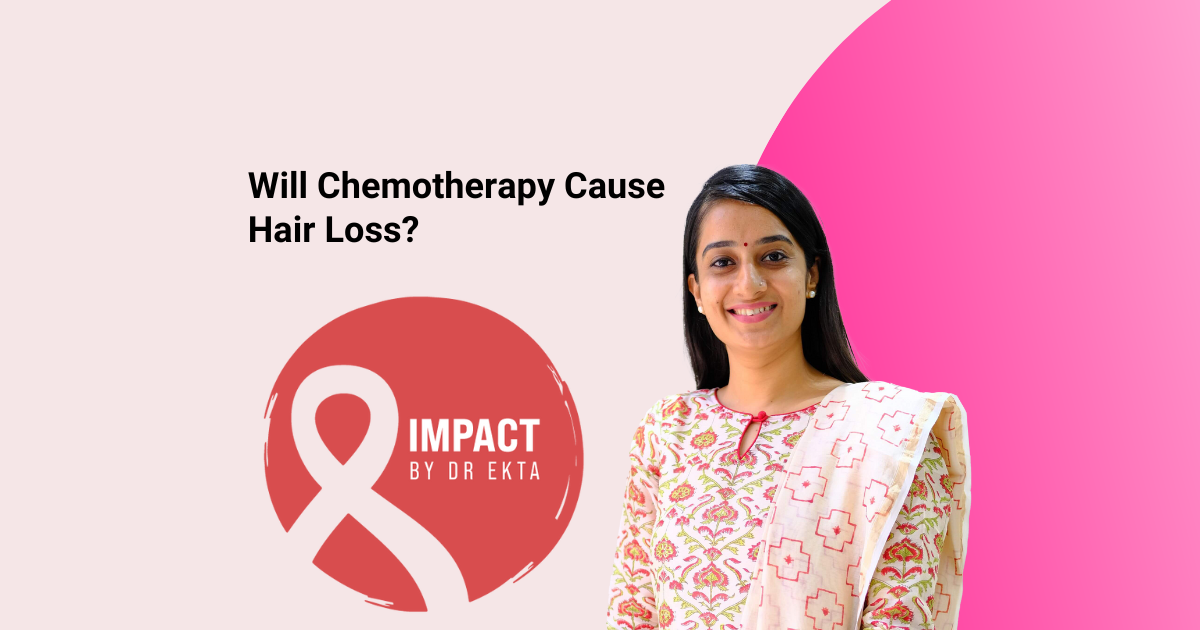One of the most common concerns my patients express when facing cancer treatment is whether will chemotherapy cause hair loss. It’s an understandable worry, our hair is an essential part of our identity, and the thought of losing it can be distressing. While chemotherapy plays a vital role in fighting cancer, its effects on hair vary from person to person and depend on several factors. Let’s explore how chemotherapy affects hair, why it happens, and what can be done to manage it.
Why Does Chemotherapy Cause Hair Loss?
Chemotherapy works by targeting rapidly dividing cells, which include cancer cells. However, it also affects other fast-growing cells in the body, including those in hair follicles. This can lead to hair loss, a condition known as chemotherapy-induced alopecia. The extent of hair loss depends on the type and dosage of chemotherapy drugs used, as some are more likely to cause hair loss than others.
How Much Hair Will I Lose?
Not everyone undergoing chemotherapy will experience the same level of hair loss. Some may notice mild thinning, while others might lose all their hair, including eyebrows and eyelashes. The pattern of hair loss can vary:
Partial thinning: Some patients may experience mild shedding or a general thinning of hair.
Complete hair loss: Certain chemotherapy drugs lead to complete baldness.
Patchy hair loss: Hair may fall out in uneven patches rather than all at once.
Hair loss typically begins two to three weeks after starting chemotherapy, although this timeline varies.
Are All Chemotherapy Drugs the Same?
Different chemotherapy drugs have varying effects on hair. Some are more aggressive toward hair follicles, while others may cause minimal shedding. For instance:
High-risk drugs: Doxorubicin, Cyclophosphamide, Paclitaxel
Moderate-risk drugs: Carboplatin, Methotrexate
Low-risk drugs: Some targeted therapies and immunotherapies
Your oncologist will discuss the likelihood of hair loss based on your specific chemotherapy regimen.
Can Hair Loss Be Prevented?
While hair loss due to chemotherapy cannot always be avoided, there are strategies to minimize it:
1. Scalp Cooling Therapy
Scalp cooling caps, also known as cold caps, work by reducing blood flow to the scalp during chemotherapy sessions, thereby limiting the amount of medication reaching hair follicles. Studies show that scalp cooling can help some patients retain a significant amount of hair.
2. Gentle Hair Care
To reduce hair damage, I advise my patients to:
Use mild, sulfate-free shampoos.
Avoid excessive brushing or tight hairstyles.
Limit the use of heat styling tools, such as blow dryers and curling irons.
3. Short Haircuts or Head Coverings
Some patients find that cutting their hair short before starting chemotherapy helps them cope better with hair loss. Wigs, scarves, and hats can also offer comfort and confidence during this time.
What Happens After Chemotherapy?
One of the most reassuring things I tell my patients is that hair loss from chemotherapy is usually temporary. In most cases, hair starts growing back within 3 to 6 months after finishing treatment. However, the new hair may:
Be a different texture (e.g., curly instead of straight).
Have a different color.
Appear thinner or thicker initially before returning to normal.
Coping with Hair Loss Emotionally
Losing hair due to chemotherapy can be emotionally challenging. Many of my patients struggle with self-image, but it’s important to remember that hair loss is temporary and does not define who you are. Joining support groups, talking to a counselor, or connecting with others who have gone through similar experiences can provide comfort and encouragement.
Conclusion
While chemotherapy can cause hair loss, the extent varies based on the type of drugs used and individual factors. Scalp cooling and gentle hair care may help minimize hair loss, but for many, it is an unavoidable part of treatment. The good news is that hair almost always grows back after chemotherapy ends. As an oncologist, I encourage my patients to focus on the bigger picture beating cancer and reclaiming their health. Hair may be lost temporarily, but life and recovery are what truly matter.

